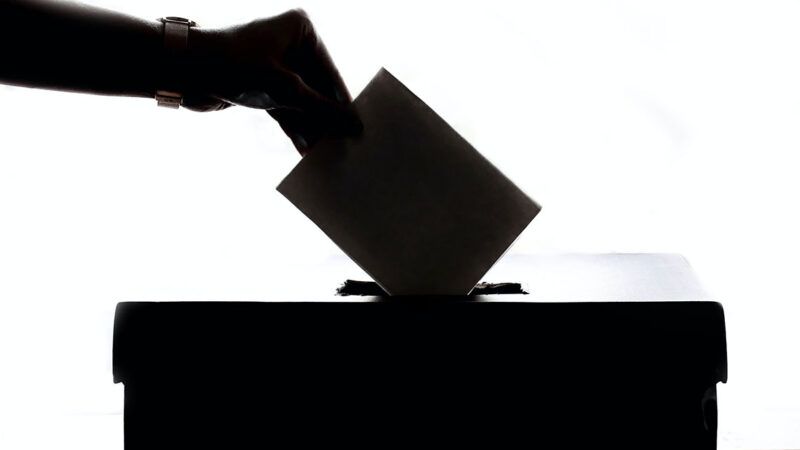Don't Criminalize Election Lies
The damage caused by election lies is not worth abandoning free speech traditions.

On the first anniversary of the January 6 riot at the U.S. Capitol, Washington Gov. Jay Inslee announced legislation that would make lying about election results a crime in the Evergreen State.
Inslee, a Democrat, said the bill is necessary to protect democracy from "an ongoing coup attempt" fueled by former President Donald Trump's false claims about the 2020 presidential election. "The defeated president as recently as an hour ago is yelling fire in the crowded theater of democracy," Inslee said in January, invoking every censor's favorite analogy.
Trump's mendacity continues to have a negative impact on our political system. Polls indicate that many of his supporters still believe the election was "stolen" by Democrats. But Inslee's bill would create an even bigger problem: a government empowered to punish opposition candidates for political speech.
The legislation would make it a gross misdemeanor for candidates or elected officials to "knowingly, recklessly, or maliciously" make false statements about election results. Violators would face up to a year in jail, a maximum $5,000 fine, or both. They also could be removed from office upon conviction.
To violate the law, statements must be intended to "incite or produce imminent lawless action" and have that effect; be made for the purpose of undermining "the election process or election results"; or falsely claim entitlement to an office after legal challenges have been resolved and the results have been certified.
That first criterion is based on a test that the Supreme Court established in the 1969 case Brandenburg v. Ohio, which said speech is not protected by the First Amendment when it is "directed" at inciting "imminent lawless action" and "likely" to have that result. The other criteria, however, aim to protect the reputation of government agencies, a more dubious constitutional rationale. In the 1964 case New York Times v. Sullivan, the U.S. Supreme Court, quoting the Illinois Supreme Court, noted that "no court of last resort in this country has ever held, or even suggested, that prosecutions for libel on government have any place in the American system of jurisprudence."
The bill contradicts an important free speech principle: It's not the government's job to police the veracity of political statements. The potential chilling effect of such a law is easy to envision. Imagine a genuinely disputed election where the party in power can prosecute the other side for complaining too much.
Even if Inslee's proposed bill survived constitutional scrutiny, the damage caused by election lies is not worth abandoning free speech traditions. A bad lie is easier to fight than a bad law.
Show Comments (173)